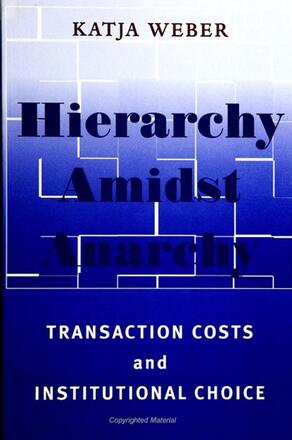
Hierarchy amidst Anarchy
Transaction Costs and Institutional Choice
Alternative formats available from:
Analyzes the underlying basis for state participation in cooperative international structures.
Description
Hierarchy amidst Anarchy is a study of state security provisions, explaining not only why states cooperate, and with whom, but also why they choose the specific types of cooperation they do. In contrast to competing theories that explain international cooperation in terms of the desire to be "bigger" or "stronger", Weber insists that the key to understanding countries' international institutional choices can be found by focusing on economic theories of organization and, more specifically, transaction costs. Cross-sectional studies of two historical periods, the final years of the Napoleonic Wars (1812-15) and the post-1945 period – such contrasting security structures as NATO and the European Defense Community - are used to illustrate the argument.
Katja Weber is Assistant Professor of International Affairs at the Georgia Institute of Technology.
Reviews
"Weber identifies an important puzzle and draws convincingly on theories of transaction costs to specify rigorous answers to this puzzle. This book makes a contribution to theoretical and empirical studies of international institutions and organizations. It also turns our attention to an aspect of alliances that is typically neglected. " — Lisa Martin, Harvard University
"Important, original, and strong scholarship. " — Andrew Moravcsik, author of The Choice for Europe: Social Purpose and State Power from Messina to Maastricht